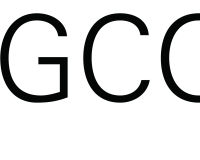
Charitable gambling and harm minimization measures
Guest article provided by IAGR partner, Greo Evidence Insights.
Depending on the jurisdiction, charitable gambling can include activities like bingo, raffle tickets, and lotteries. Charitable gambling is often seen as a lower-risk form of gambling that is relatively accessible, affordable, and, in the case of bingo, offers social connection.
The idea that bingo, in particular, is lower risk relative to other types of gambling is based on the traditional group-based nature of the game, physical constraints on the number of cards played, and set time limits.
However, changes to the way that charitable gambling activities are played, such as online games, bingo played on electronic tablets, and gambling in settings close to electronic gambling machines, have altered the gambling environment, potentially leading to a greater risk of harm than previously thought. For example, while traditional, paper-based bingo naturally limits the number of paper books people can play during a game, electronic bingo terminals have the capacity for hundreds of concurrent games, which increases the amount people can spend and their potential losses.
What safeguards should regulators put in place to minimize harm from charitable gambling activities?
Recently published resources
Below is a selection of resources that may help to inform regulatory approaches to charitable gambling:
- A public health perspective on addressing gambling harm from bingo
- Lucky for some: bingo in Victoria
- Increasing harms for bingo players: digitisation, commercialisation and regulatory inadequacy: a multi-site case study
- An examination of Positive Play and responsible gambling across four types of gambling
- Australian adults’ views of harm for nine popular gambling products
- The Effect of Mandatory Play Breaks on Subsequent Gambling Behavior Among Norwegian Online Sports Betting, Slots and Bingo Players: A Large-scale Real World Study
Evidence-informed action
Below are evidence-informed examples of action taken in jurisdictions internationally.
Canada (Prince Edward Island)
In the Canadian province of Prince Edward Island, all forms of gambling, including charitable gambling, are a form of regulated entertainment. As part of its 2023-2028 strategy the PEI Lotteries Commission is positioning charitable gambling for increased consumer protection, including dedicating resources for charitable gambling regulation and developing quick and accessible training for charitable lottery licensees based on gambling harm minimization research and best practices.
United Kingdom
In Great Britain, people who play bingo can register to self-exclude from land-based licensed bingo premises using the Bingo Industry Self-Exclusion Scheme (BISES). The GamStop self-exclusion scheme can be used to self-exclude from online bingo websites licensed and regulated in Great Britain. The gambling regulator in Great Britain, the Gambling Commission, has put several measures in place to protect National Lottery participants, including preventing play by persons under the Legal Age Limit, not encouraging excessive play, restricting the use of credit, and protection and support for Prize winners.
- Bingo Industry Self-Exclusion Scheme (BISES)
- GamStop Self-Exclusion
- Fourth National Lottery Licence: Regulatory Handbook (Condition 8: Protecting Participants’ Interest)
Finland
Veikkaus, the state-owned monopoly in Finland, requires identification for all digital and physical gambling. Personal identification allows Veikkaus to effectively identify risky gambling based on data and intervene. These changes also allow people to access their complete gambling history, including charitable gambling. Veikkaus also does not encourage people to gamble to finance the charitable causes that Veikkaus supports.





